Latinos built a vibrant community on the sea in Oxnard, California. Trump raids are shattering it
Published in News & Features
OXNARD, Calif. — Latinos make up more than half of Oxnard's 202,000 residents, and they have long taken pride in helping to build this sprawling city by the sea.
Constructed around the same agriculture fields where Cesar Chavez organized migrant laborers before establishing the United Farm Workers of America, Oxnard is a place where Latino influence is omnipresent — from music festivals to eateries.
At City Hall, officials have made it a priority to protect the area's immigrant residents and workforce — whether that involves bolstering tenant rights against predatory landlords, or joining a civil rights lawsuit against indiscriminate raids.
But a summer of immigration sweeps has fueled distrust in the community, and put city officials on the defensive.
The Trump administration's crackdown has sparked street protests, as well as complaints that city officials need to be more proactive and forceful in the face of federal immigration enforcement.
"Tensions are high in the community right now and relations are being strained," said Lucas Zucker, co-executive director of Central Coast Alliance United for a Sustainable Economy, the same group behind new tenant protections. "It takes a lot of work to build trust with the immigrant community and any law enforcement or government."
At a City Council meeting last month, speakers criticized police and city leaders for not doing enough to help the immigrant population. Some called for legal action.
"Our community is under attack by the federal government," Veronica Miranda, 65, told the council that evening. "I don't know what you can do, but I'm going to ask you to do something — a gesture, can we look at an eviction moratorium?"
"You're not able to stop the federal government," said Pastor Greg Runyon. "I don't fault you for that … but you do have a weapon — it's a bully pulpit."
Vanessa Valdez, an attorney and resident, didn't mince her words.
"You're here to serve us, if you refuse to act, we will make sure you do not get reelected," she said. "We will hold every one of you accountable for what happens under your leadership, starting with the death of Jaime Alanis García."
City officials said they understand the anger, but they insist they are doing all they can to fight the federal action.
Alexander Nguyen, city manager for Oxnard, said it was particularly alarming given the city's efforts to build trust with immigrant communities.
"The Police Department has worked really hard over the last two decades to establish a tremendous amount of trust and respect, and open communication," Nguyen said. "When you're talking about the federal actions, it clearly can drive a wedge between specific communities and their police departments."
Since January, federal immigration agents had been parachuting into the town and surrounding communities. The agents, successfully at times, entered farms and packinghouses to apprehend immigrant workers living in the country illegally. They stopped people in their vehicles and on the street, sometimes loitering around schools.
Some of the raids were captured on video and shared on social media, including one in May, when federal agents detained a man at a gas station, leaving his two sons behind. One of the sons was 19, but did not have a license to drive.
The following month, amid harvest season, federal agents were caught on video as they chased a farmworker across a strawberry field.
As the raids continued, community frustration grew. That was especially the case for the Police Department, whose officers often stood between agents and demonstrators.
It didn't help that federal authorities would drive to the police station to report that they were being followed, prompting police officers to contact immigrant rights advocates, who have been alerting residents of the operations and documenting them.
And because federal agents often dressed in plain clothes, there were a few cases in which activists mistakenly followed police officers home from work. In some cases, sting operations by a police task force have been complicated by people mistaking them for Immigration and Customs Enforcement operations.
But things came to a head last month when the largest cannabis operator in the state — Glass House Brands — was the target of two separate worksite operations in Camarillo and Carpinteria.
There were hundreds of workers at the Camarillo property, many of them Oxnard residents, who were detained and taken away for deportation. It was during this operation that García fell three stories from a greenhouse while trying to evade federal agents.
García died from his injuries two days later.
The Department of Homeland Security said that García was not among those being pursued and that federal agents called in a medevac for him.
The operation led to an hours-long standoff between demonstrators and federal agents, who used less lethal ammunition to keep the crowd at bay. A few demonstrators responded by throwing rocks at federal vehicles as they left the area. At least one man was captured on video shooting a handgun at agents.
The operation also included members of the National Guard, prompting the National Immigration Law Center to file a Freedom of Information Act to ascertain the military's role in the operation.
"The deployment of the U.S. military in our communities is not just unnecessary, it is yet another fear tactic this administration is using in its concerted assault on immigrant communities and our democratic traditions," said Benjamin R. Farley, special counsel at NILC, in a written statement.
The situation only worsened when federal agents showed up at a local hospital where injured farmworkers had been taken, prompting Oxnard police to respond.
Oxnard Police Chief Jason Benites said the officers were requested by the Fire Department, not ICE. However, their presence drove a narrative that officers were helping federal agents. He said the officers were there to ensure that ambulances could access the emergency room.
Two days after the operation, a federal judge would order immigration authorities to stop detaining people based on their ethnicity or occupation. The order covers seven counties: Los Angeles, Riverside, San Bernardino, Orange, Ventura, Santa Barbara and San Luis Obispo.
In her ruling, U.S. District Judge Maame Ewusi-Mensah Frimpong found sufficient evidence that agents were using race, language, a person's vocation or the location they are at — such as a car wash, Home Depot, swap meets or a row of street vendors — to form "reasonable suspicion."
Frimpong said reliance on those factors, either alone or in combination, does not meet the requirements of the 4th Amendment. Her order prohibits agents from relying solely on those factors to establish reasonable suspicion to detain people.
Farmworkers have long been a part of life of Oxnard. The vast coastal plain grows most of the nation's celery, along with beans, strawberries, onions and peppers, according to UC Davis data.
Chavez, the father of the farm labor movement, spent a year in the town organizing workers and registering voters.
The city had its share of racial strife over the years, with some Latino migrants feeling they were mistreated by a white majority that also owned the farms where they worked. But by the early 1990s, Latinos became the majority and rapidly remade political and cultural life.
Over the next three decades, it became a magnet for Latino residents and saw its population nearly double. A thriving Latino middle class was also established.
But it wasn't until 2010 — after a massive scandal brought government reforms — that Latinos were significantly represented in city affairs.
The first change came when voters elected Carmen Ramirez, the first Latina on the Oxnard City Council. She would later become the first Latina on the Ventura County Board of Supervisors. An environmentalist, she along with environmental groups and residents worked together to stop the construction of a power plant. They would also address other environmental issues.
Another change came in 2018, when the city moved to district elections, allowing for Latino representation in government to grow.
"I think both things made the City Council more racially diverse, but also more accessible to grassroots community members who wanted to run for office, because it's a lot easier to run in a small district, especially in a small town," Zucker said. "And so I think that that has helped bring in some pretty progressive and community-oriented folks to the City Council, who have moved forward ... some really important policies."
Immigration raids are not new here. In the 1970s and 1980s, the federal government launched roundups targeting Mexican and Central Americans.
Oxnard was still trying to recover from racial strife at the time of the crackdown. Much of the tension was related to school segregation and police brutality. The latter led to violent riots when residents of La Colonia, a Latino neighborhood where Chavez once lived, rose up.
But under Police Chief Robert Owens, the department tried to shift the way it conducted police work, pushing officers to build a closer relationship with the community.
When Benites joined the department more than 30 years ago, he was told that officers never got involved in federal immigration operations and that when it came to the immigrant population, everyone was treated equally and that the only time you'd arrest someone was for committing a crime.
Police departments have walked a fine line between being peacekeepers and crimefighters, a distinction that has been difficult to make at times amid controversial shootings and past enforcements.
In the summer of 1978, Oxnard police officers and Ventura County sheriff deputies found themselves standing between members of the Ku Klux Klan and demonstrators. The Klan attempted to show the film "The Birth of a Nation" at the town's community center in an effort to recruit new members, but their arrival led to a standoff that turned violent.
Residents at the time accused Oxnard police officers of protecting members of the Klan. At least one officer who was there during the riot said he and others were there to keep the peace and prevent both sides from hurting each other.
Now, officers find themselves being accused of helping federal agents.
Zucker, the co-executive of Cause, said he doesn't believe the Police Department is working with the federal government, but he does believe there is some soft cooperation. He said when federal agents go to the station and request police assistance, that same response is not provided to activists who are trying to determine what agency the federal agents work for.
"I think from the Police Department's perspective, I think what they say is: 'We would do this for anyone.'" he said. "But there's just a perception in the community that it never seems to be the case that the local police are helping the protesters or immigrants in those confrontations, and it always just so happens they seem to be making it easier for ICE to do that."
In order to preserve its relationship with the community, Benites said the department has reached out to immigrant rights advocates to discuss any issues. An officer also takes questions from the community on a local radio program — a long-standing tradition started many years ago and later expanded to include the Spanish media by Mayor Luis McArthur, a former Oxnard police officer.
Most recently, Benites launched a podcast to discuss issues such as immigration operations and to clarify the department's role.
Even before Donald Trump was sworn into office, Benites and other police chiefs in Ventura County put out a joint statement saying they do not assist or take part in federal immigration operations. They underscored their roles are limited and often subjected to investigations targeting organized crime such as drug organizations or human trafficking operations.
Despite the outreach, he said, it's not always guaranteed that people will listen.
"There's only so much you can do," Benites said.
The raids have also had an impact on the relationships between city officials and social justice groups.
The groups want the city to stand with the immigrant community and have asked that the city allocate money for a legal defense fund to help families that have been affected by the immigration raids.
McArthur, the mayor, said the city has plans to meet with all groups to address ongoing immigration issues in the city.
McArthur said he's hoping to keep the bridges that he and his predecessors spent years forging with local groups, but it has been difficult with the high number of operations taking place.
©2025 Los Angeles Times. Visit at latimes.com. Distributed by Tribune Content Agency, LLC.
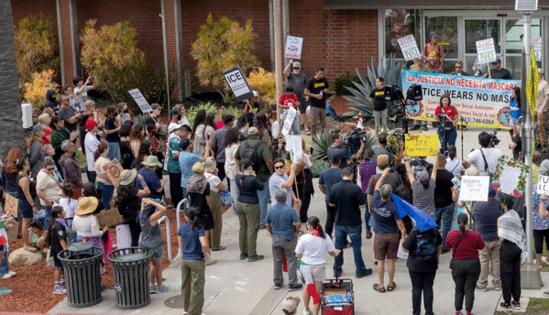
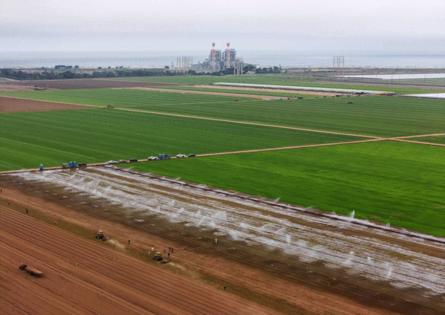
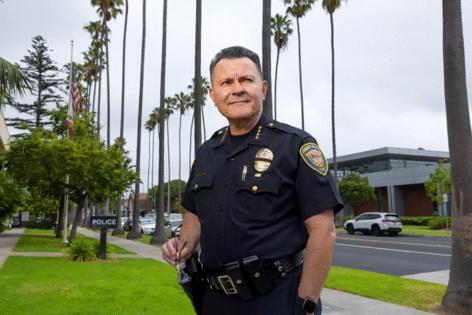
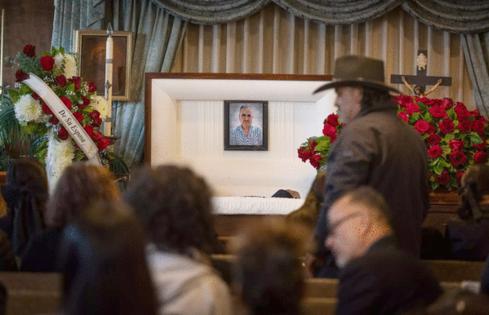
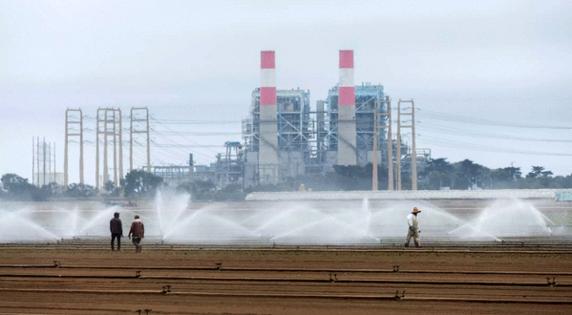











Comments